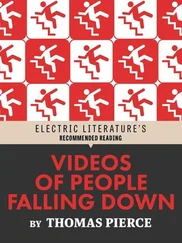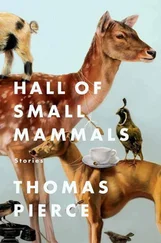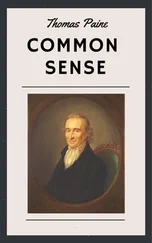They pass a house and a sign advertising a sculpture exhibition.
‘There are people living here,’ Thorleif yells.
‘So what?’
‘What if they see us? What if there are other cars behind us or coming towards us?’
‘Think about your girlfriend. Think about what we’re going to do to her if you don’t run him over.’
‘I can’t do it!’ he screams.
‘Of course you can!’
The tears well up in his eyes and make it difficult for him to see clearly. Thorleif closes them and tries to blink away the wetness, but the tears keep flowing. He struggles to breathe. The engine emits another roar as they gain on the jogger. The fields open up on both sides of the road and there is a smell of onions, of bloody onions, while Thorleif’s heart feels as if it is about to jump out of his chest. His hears himself cry out as his hands twist the steering wheel in the direction of the jogger. I’m going to hit you, Thorleif thinks, I’m going to hit you now.
He closes his eyes and waits for the car to react to the collision with a human being and the loud crash that will follow as Thorleif takes the life of an innocent man. But the crash never comes. The wheels of the car never stray across the edge of the tarmac where the gravel starts, where thousands of onions are neatly lined up. Thorleif opens his eyes again. Only a few metres ahead of them the road goes into a double bend, and they are about to plough into a field where the red-tinted flowers of the potatoes still display the remains of summer. Thorleif tries frantically to regain control of the car, to get it back on the road. He hears a quartet of tyres scream as the car hurls itself to the left just as they come into the bend and Thorleif clings to the steering wheel while he pants and tries to straighten up, gasping and frantically turning the wheel. Behind them the jogger has stopped. He waves his clenched fists at them.
You failed, Thorleif mutters to himself. You failed the test.
He stares at the man who has already pressed a number on his mobile which he is pressing against his ear.
‘Hi, it’s me,’ he says and sends Thorleif an icy stare. ‘He screwed up. Kill his girlfriend.’
A bunch of keys that editor-in-chief Ida Caroline Ovesen has lent to Henning is jingling in his hands. One of the keys fits the lock of a basement storeroom where all superfluous office equipment was dumped during the refurbishment until someone found a suitable home for it. ‘It’ll probably stay there for ever,’ Ida remarked.
She had no idea where his cassette tapes might be. The refurbishment had been chaotic, and many staff had helped clear out the offices. This impression of chaos is reinforced when Henning enters a room filled to the rafters with chairs, desks, old computers, boxes of wires and cables, mice and mouse mats, ring binders and bookcases, workstations and monitors.
Henning moves a chair, clambers to the first desk and opens its drawers one by one, but they are all empty. The desks are identical, and none of them has his or any of his colleagues’ names on them so he has no other choice but to go through all of them and keep his fingers crossed that he might have some luck for once. He clears a path, taking one drawer at a time and slamming it shut as soon as he has looked inside. Soon he has built up a rhythm, but it produces no result.
Perhaps the drawers were emptied first, he speculates. He closes his eyes and imagines being the person who cleared out and removed the tapes from his desk. Could they have been put in a separate box? Bundled together with sticky tape even? Henning opens his eyes and locates the packing crates but soon realises that the filing system used was the one known as chucking stuff in any old box. Ten minutes later he has rummaged through all of them without finding a single audio cassette.
He looks around again. At the rear, behind the storage crates, he can see an unvarnished pine shelving unit filled with old stationery, headed paper with 123news ’s old logo, envelopes, pens — even umbrellas and white T-shirts. Henning works his way across to it, stepping over a dusty computer monitor in the process, and starts scanning the shelf in front of him at eye level. Nothing of interest. He stands on tiptoe and takes down a box from the top shelf. As he does so its bottom falls out and the contents cascade around his feet. He bends down and feels twinges in his back and hip, pain that sometimes returns as a reminder — as if he could ever forget the slippery railing and the fatal flagstones two floors below, but he grits his teeth and searches through the rubbish which someone decided was worth keeping. Conference papers for the Norwegian Foundation for Investigative Journalism. Union agreements. A computer mouse. Three pens that are unlikely to work. He removes two half-empty boxes of drawing pins that have fallen out — and spots a pile of cassettes held together with yellow tape. The initials HJ have been written on the side followed by a question mark.
Henning smiles. So someone did pack them, he thinks, delighted, as he counts eight cassettes, each containing four hours of recording time. He realises immediately that he will be unable to concentrate on anything else until he has listened to all of them. Perhaps he could ask Heidi Kjus for a few days’ leave.
His thoughts are interrupted by his mobile ringing. The caller is unknown, but Henning replies.
‘It’s Tore Pulli. Olsvik said you wanted me to call you.’
Henning stands up and feels his back ache. ‘Yes. Eh, great.’
He tries to organise his thoughts but ends up asking the first question that comes into his head. ‘How do we know each other?’
The seconds pass without Pulli replying.
‘The first time we spoke, you asked me if I remembered you. That’s not a question you ask someone you’ve never met or spoken to before. But I have no memory of us meeting. I remember nothing from the weeks or days before my son died. So, I was wondering, did we have any contact around the time of the fire at my flat? Did we know each other?’
The seconds tick away while Henning grows increasingly agitated.
‘I read somewhere that you weren’t in the habit of giving interviews, Pulli. Was I trying to arrange an interview with you? Was that the reason?’
Pulli doesn’t reply.
‘Was I working on a story where you were one of the players?’
Still silence.
‘Why were you outside my flat that night? And I mean, really?’
Pulli sighs. ‘I can’t tell you anything about that, Juul.’
‘Why not?’
‘I just can’t. The telephone in here is being monitored.’
‘I don’t give a damn about that.’
‘No, but I do.’
‘If you want my help, you have to not care about that.’
Pulli sighs. As does Henning when Pulli takes a long time to consider his response.
‘I can’t tell you on the telephone,’ he says eventually.
‘Then tell me this,’ Henning counters aggressively. ‘How did you know that I was back at work?’
Another silence.
‘Great,’ Henning snorts. ‘I can’t be bothered with this. Good luck with your appeal.’
‘No! Don’t do it, don’t do it, please, don’t do it!’ Thorleif grabs the man’s left shoulder and pulls him.
‘Watch the road!’
The car has swerved out on the gravel at the edge of the tarmac. Thorleif lets go of the man and forces the car back on the road. The moment he is in control of the car, he pleads with the man again. ‘Don’t do it! I’ll do whatever you want, please, give me another chance, please, don’t hurt her, don’t kill her!’
‘It’s too late, Toffe. You had your chance.’
‘No, it can’t be too late! I’ll do what you want me to. Whatever it is. Please.’
Читать дальше












